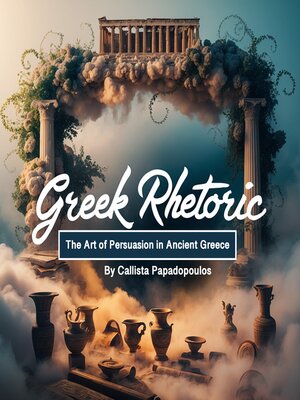Greek Rhetoric
audiobook (Unabridged) ∣ The Art of Persuasion in Ancient Greece
By Callista Papadopoulos

Sign up to save your library
With an OverDrive account, you can save your favorite libraries for at-a-glance information about availability. Find out more about OverDrive accounts.
Find this title in Libby, the library reading app by OverDrive.



Search for a digital library with this title
Title found at these libraries:
| Library Name | Distance |
|---|---|
| Loading... |
This audiobook is narrated by a digital voice.
In the bustling agora of ancient Athens, where merchants hawked their wares and citizens debated the pressing issues of the day, a revolutionary art was taking shape. This art would fundamentally transform not only Greek society but the entire Western intellectual tradition. Greek rhetoric, born from the practical needs of a democratic society, emerged as the systematic study of persuasive communication, establishing principles that continue to influence speakers, writers, and thinkers more than two millennia later.
The origins of Greek rhetoric can be traced to the unique political and social circumstances of the ancient Greek city-states, particularly Athens during the fifth and fourth centuries BCE. Unlike the monarchical systems that dominated much of the ancient world, Greek democracy demanded that citizens participate actively in public discourse. In the Athenian assembly, ordinary citizens were expected to speak on matters of war and peace, taxation and public works, justice and governance. This democratic imperative created an urgent need for effective communication skills, as the ability to persuade one's fellow citizens often determined not only individual success but the fate of the entire polis.
The earliest systematic approach to rhetoric emerged in Sicily during the mid-fifth century BCE, following the overthrow of tyrants in Syracuse and other Sicilian cities. As democratic governments were established, citizens who had been dispossessed during the tyrannical periods sought to reclaim their property through the courts. This created a pressing need for effective legal advocacy, leading Corax of Syracuse and his student Tisias to develop the first formal system of rhetorical instruction. Their work, though now lost, established many fundamental principles that would later be refined by greater thinkers.







